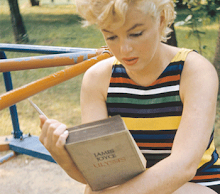and now for some psychogeographical drifting
In her essay Street Haunting: A London Adventure, Virginia Woolf explores the liberating effect of walking without purpose in
What greater delight and wonder can there be than to leave the straight lines of personality and deviate into those footpaths that lead beneath brambles and thick tree trunks into the heart of the forest where live those wild beasts, our fellow men?
For Woolf, the city walk enables the individual to escape, or ‘deviate’ from themselves, even adopting ‘briefly for a few minutes the bodies and minds of others’ as part of a simultaneous escape, and reaffirmation of identity. Unsurprisingly therefore, it plays a significant role in Woolf’s novel on human interconnectedness and isolation, Mrs Dalloway. Concerned with the interior, emotion lives of an apparently disparate, but intimately linked group of people in
we sit surrounded by objects which perpetually express theoddity of our temperaments and enforce the memories of our own experience.
She had a perpetual sense, as she watched the taxi cabs, of being out, out, far out to sea and alone; she always had the feeling that it was very, very dangerous to live even one day.
She had the oddest sense of being herself invisible; unseen; unknown; there being no more marrying, no more having of children now, but only this astonishing and rather solemn progress with the rest of them, up Bond Street, this being Mrs Dalloway; not even Clarissa any more; this being Mrs Richard Dalloway.
Landscape – this is what the city becomes for the flâneur. Or more precisely, the city splits into its dialectical poles. It becomes a landscape that opens up to him and a parlour that encloses him.
Surely this is similar to the effects the walk has on Clarissa Dalloway in the opening of Woolf’s novel, appropriate when one remembers that the novel concentrates on Clarissa’s simultaneous feelings of isolation from society, frustration at society’s definitions of her, and her desire to reach out beyond her home, achieved through the parallels Woolf draws between Clarissa and the young war veteran, Septimus Smith. The notion of the self fragmenting in the chaotic London Streets, reaching out and forcing sympathetic connections with strangers is explicitly referred to in Street Haunting, when she muses that nature was too distracted when making man, and consequently allowed contradictory impulses and desires to influence each person:
we are streaked, variegated, all of a mixture; the colours have run. Is the true self this which stands on the pavement in January, or that which bends over the balcony in June? Am I here, or am I there? Or is the true self neither this nor that, neither here not there, but something so varied and wandering that it is only when we give the rein to its wishes and let it take its way unimpeded that we are indeed ourselves?
By leaving the home and the ‘old prejudices that fold us round’, the individual liberates themselves in wandering the streets, enables the ‘varied and wandering’ self to freely explore and adopt diverse identities, resulting in an affirmation of the self; ‘we are indeed ourselves’.
Frustratingly, as Woolf also acknowledges, this can only be an occasional luxury, for people must allow the world to reduce them to their social status and responsibilities, later rationalising; ‘for convenience sake a man must be whole’. This is a sad fact of all society, but nevertheless, the city provides the walker with the opportunity to ‘shed the self our friends know us by and become[s] part of that vast republican army of anonymous trampers'.
Oh when my love, my darling, You've left me here alone,
I'll walk the streets of London, Which once seemed all our own.
The vast suburban churches, Together we have found:
The ones which smelt of gaslight, The ones in incense drowned.



0 Comments:
Post a Comment
Subscribe to Post Comments [Atom]
<< Home